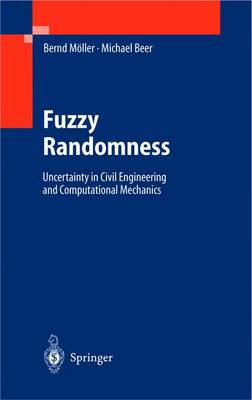sections dealing with fuzzy functions and fuzzy random functions are certain to be of special interest. The reader is expected to be in command of the knowledge gained in a basic university mathematics course, with the inclusion of stochastic elements. A specification of uncertainty in any particular case is often difficult. For this reason Chaps. 3 and 4 are devoted solely to this problem. The derivation of fuzzy variables for representing informal and lexical uncertainty reflects the subjective assessment of objective conditions in the form of a membership function. Techniques for modeling fuzzy random variables are presented for data that simultaneously exhibit stochastic and nonstochastic properties. The application of fuzzy randomness is demonstrated in three fields of civil engineering and computational mechanics: structural analysis, safety assessment, and design. The methods of fuzzy structural analysis and fuzzy probabilistic structural analysis developed in Chap. 5 are applicable without restriction to arbitrary geometrically and physically nonlinear problems. The most important forms of the latter are the Fuzzy Finite Element Method (FFEM) and the Fuzzy Stochastic Finite Element Method (FSFEM).
- ISBN13 9783540402947
- Publish Date 19 February 2004
- Publish Status Active
- Publish Country DE
- Publisher Springer-Verlag Berlin and Heidelberg GmbH & Co. KG
- Imprint Springer-Verlag Berlin and Heidelberg GmbH & Co. K
- Edition 2004 ed.
- Format Hardcover
- Pages 336
- Language English
